Reimagining Long-Term Care in Times of COVID and Beyond
Session Facilitator: Linda Bifano, DNP
Part 1: A Call for Collaboration Among Long-Term Services and Supports, Health Care Systems, and Public Health
Presenters:
- Robyn Stone, DrPH, Co-Director, LeadingAge LTSS Center @UMass Boston, Boston, MA
- Courtney Van Houtven, PhD, Duke University, Margolis Center for Health Policy, Durham, NC
- Nathan Adam Boucher, DrPH, Duke University, Sanford School of Public Policy, Durham, NC
- Walter Dawson, DPhil, Oregon Health and Science University & Portland State University, Portland, OR
Summary:
The COVID-19 pandemic has significantly impacted the U.S. long-term services and supports (LTSS) system, especially the individuals who receive care as well as those who provide it. Indeed, the pandemic has both exacerbated and amplified many enduring systemic issues including financing arrangements and workforce challenges and has demonstrated the interdependence of LTSS with the public health and health care systems. Policymakers have a unique opportunity to enact substantive reforms to the U.S. LTSS system and support enhanced collaborations with the health care and public health systems.
Learning Objectives:
- Understand the historical and systemic challenges within the long-term services and supports (LTSS) system
- Explore how the COVID-19 pandemic has amplified the historical challenges within LTSS
- Discuss opportunities for policy change at the federal and state level to improve LTSS delivery, access, and financing and interconnections with the health and public health systems
Part 2: Reaction Panel - Perspectives from Oregon
- Lynette Caldwell, Adult Foster Home Program Manager, Oregon Department of Human Services, Salem, OR
- Ana Potter, JD, Director, Aging Veteran Services, Oregon Department of Veterans Affairs, Salem, OR
- Kimberly Fuson, Chief Executive Officer, Cedar Sinai Park, Portland, OR
Summary:
Approximately 30,000 Oregonians live in licensed long-term care settings, including nursing facilities, residential care and assisted living facilities, and adult foster homes. In this second part of the session, three panelists will share important insights gained during the pandemic and provide Oregon-based perspectives in response to the content presented during the first part of this session. The panelists will discuss the importance of collaboration among systems and agencies and address how creating a sense of safety and security through presence, participation, and consistent communication has helped staff, residents, their families, and broader communities navigate through the COVID-19 pandemic.
Learning Objectives:
- Understand the importance of inter-agency alignment through communication and professional relationships during a disaster
- Understand the importance of "normalcy" when times are not normal
- Understand the crucial role of health care workers and the impact the pandemic has had on them
- Understand how presence, participation, and communication impacts feelings of safety and security for residents, staff, families, and community
Continuing Education Credit: Each session has been approved for 2 CE credits (NASW Oregon Chapter) and 2 AFH training credits - that's a total of 8 CE credits if you attend the entire series. There will be a $5 fee per session for NASW credits. Regular Certificates of Attendance can also be issued.
This is the third of four sessions of OGA's 2021 virtual conference. You can register for individual sessions or, at a discount, for the entire conference series. For an overview of all sessions, please visit the conference page.
Register Here
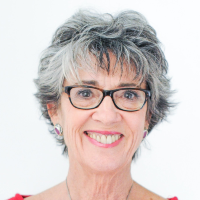 Robyn Stone, DrPH, is Senior Vice President for Research at LeadingAge and Co-Director of the LeadingAge LTSS Center @UMass Boston. She is a noted researcher and internationally recognized authority on long-term care and aging policy, and has been engaged in policy development, program evaluation, large-scale demonstrations and other applied research activities in these areas for over 40 years. Dr. Stone has held senior research and policy positions in both the federal government and the private sector, including serving in the U.S. Department of Health and Human Services as Deputy Assistant Secretary for Disability, Aging and Long-term Care Policy and Assistant Secretary for Aging in the Clinton administration. Her work bridges the worlds of research, policy and practice to improve the care delivered to older adults--particularly lower-income populations - and to ensure the best quality of life for these individuals and their families. Dr. Stone is a distinguished speaker and has been published widely in the areas of long-term care policy and quality, chronic care for older adults and people with disabilities, aging services workforce development, the link between low income senior housing and health and family caregiving. She is a fellow of the Gerontological Society of America and the National Academy of Social Insurance and was elected to the National Academy of Medicine in 2014. She serves on numerous provider and non-profit boards that focus on aging issues.
Robyn Stone, DrPH, is Senior Vice President for Research at LeadingAge and Co-Director of the LeadingAge LTSS Center @UMass Boston. She is a noted researcher and internationally recognized authority on long-term care and aging policy, and has been engaged in policy development, program evaluation, large-scale demonstrations and other applied research activities in these areas for over 40 years. Dr. Stone has held senior research and policy positions in both the federal government and the private sector, including serving in the U.S. Department of Health and Human Services as Deputy Assistant Secretary for Disability, Aging and Long-term Care Policy and Assistant Secretary for Aging in the Clinton administration. Her work bridges the worlds of research, policy and practice to improve the care delivered to older adults--particularly lower-income populations - and to ensure the best quality of life for these individuals and their families. Dr. Stone is a distinguished speaker and has been published widely in the areas of long-term care policy and quality, chronic care for older adults and people with disabilities, aging services workforce development, the link between low income senior housing and health and family caregiving. She is a fellow of the Gerontological Society of America and the National Academy of Social Insurance and was elected to the National Academy of Medicine in 2014. She serves on numerous provider and non-profit boards that focus on aging issues.
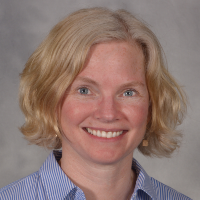 Courtney Van Houtven, PhD, MSc, is Professor of Medicine in the Department of Population Health Science at Duke University and Research Career Scientist at the Durham VA Center of Innovation in Health Services Research. Her aging and economics research interests encompass how informal caregiving affects economic, health and health care outcomes of care recipients and caregivers; she is also interested in understanding how to best to support family caregivers and in evaluating home and community based services and caregiver support policies. In an R-01 from The National Institutes of Nursing Research, NIH, Dr. Van Houtven examined the relationship between family structure, informal caregiving, and long-term care insurance (2011-2014). She is site-PI and co-investigator of the CARE-IDEAS: Caregiver Reactions and Experiences Study (PI, Mor, 2017-2021), a care partner and patient survey study that will be linked to the data from the Imaging Dementia – Evidence for Amyloid Scanning Study. She is also funded on a recently funded R-01 to understand the Effects of informal care for persons with Alzheimer’s disease and related dementias (PI, Coe, NIA, NIH, 20172020). She directs the VA-Cares Evaluation Center, which recently completed a national evaluation of the VA’s Program of Comprehensive Assistance for Family Caregivers (PCAFC), a program that supports family members who care for injured post-9/11 Veterans (2014-2020). She is co-PI on the QUERI Program Project, “Optimizing Function and Independence”, in which she led the implementation of her previously tested caregiver skills training program (HI-FIVES) at 8 sites nationally. An extension of the grant will allow her to implement the training nationally in VA. She is also co-PI on a comparative effectiveness study of the VA geriatric primary care medical home model of care, in which she and Dr. Hastings will examine quality of care and patient experience outcomes (2017-2020).
Courtney Van Houtven, PhD, MSc, is Professor of Medicine in the Department of Population Health Science at Duke University and Research Career Scientist at the Durham VA Center of Innovation in Health Services Research. Her aging and economics research interests encompass how informal caregiving affects economic, health and health care outcomes of care recipients and caregivers; she is also interested in understanding how to best to support family caregivers and in evaluating home and community based services and caregiver support policies. In an R-01 from The National Institutes of Nursing Research, NIH, Dr. Van Houtven examined the relationship between family structure, informal caregiving, and long-term care insurance (2011-2014). She is site-PI and co-investigator of the CARE-IDEAS: Caregiver Reactions and Experiences Study (PI, Mor, 2017-2021), a care partner and patient survey study that will be linked to the data from the Imaging Dementia – Evidence for Amyloid Scanning Study. She is also funded on a recently funded R-01 to understand the Effects of informal care for persons with Alzheimer’s disease and related dementias (PI, Coe, NIA, NIH, 20172020). She directs the VA-Cares Evaluation Center, which recently completed a national evaluation of the VA’s Program of Comprehensive Assistance for Family Caregivers (PCAFC), a program that supports family members who care for injured post-9/11 Veterans (2014-2020). She is co-PI on the QUERI Program Project, “Optimizing Function and Independence”, in which she led the implementation of her previously tested caregiver skills training program (HI-FIVES) at 8 sites nationally. An extension of the grant will allow her to implement the training nationally in VA. She is also co-PI on a comparative effectiveness study of the VA geriatric primary care medical home model of care, in which she and Dr. Hastings will examine quality of care and patient experience outcomes (2017-2020).
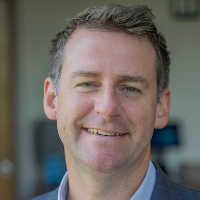 Nathan Adam Boucher, DrPH, is a Research Health Scientist at Durham VA Health System’s Center of Innovation to Accelerate Discovery and Practice Transformation (ADAPT), Duke University faculty at the Sanford School of Public Policy and the Medical School, Senior Fellow at the Duke Center for the Study of Aging & Human Development as well as Duke-Margolis Center for Health Policy Core Faculty. His research has focused on assessing patients’ and caregivers’ experiences and expectations of health care delivery during advanced illness and near the end of life, using qualitative and mixed methods research. He has extensive experience in clinical medicine, health care administration, health professions education, hospice and palliative care quality improvement, and community-based research. Challenges and opportunities at the intersection of social care and health care inform his research agenda. Dr. Boucher's collaborations across disciplines at VA and Duke and with community organizations have afforded him deep insights into the lives and challenges of vulnerable community members and family/friend caregivers. He have active research 1) describing caregivers’ social and health needs related to caring for older adults re-entering the community from prison; 2) examining hospice admissions practices and what can be done to reduce inappropriate live discharges; and 3) developing, with a cross-disciplinary team, a “life story book” intervention for families and community members living with dementia. As a VA Research Health Scientist and Career Development Awardee, Dr. Boucher is 1) a principal investigator designing a community-based lay navigator program targeting caregivers’ social and practical needs as they engage in their complex roles as caregivers of Veterans with advanced stage illness, and 2) a co-investigator on several VA projects utilizing his qualitative research skills and passions for public policy and stakeholder engagement.
Nathan Adam Boucher, DrPH, is a Research Health Scientist at Durham VA Health System’s Center of Innovation to Accelerate Discovery and Practice Transformation (ADAPT), Duke University faculty at the Sanford School of Public Policy and the Medical School, Senior Fellow at the Duke Center for the Study of Aging & Human Development as well as Duke-Margolis Center for Health Policy Core Faculty. His research has focused on assessing patients’ and caregivers’ experiences and expectations of health care delivery during advanced illness and near the end of life, using qualitative and mixed methods research. He has extensive experience in clinical medicine, health care administration, health professions education, hospice and palliative care quality improvement, and community-based research. Challenges and opportunities at the intersection of social care and health care inform his research agenda. Dr. Boucher's collaborations across disciplines at VA and Duke and with community organizations have afforded him deep insights into the lives and challenges of vulnerable community members and family/friend caregivers. He have active research 1) describing caregivers’ social and health needs related to caring for older adults re-entering the community from prison; 2) examining hospice admissions practices and what can be done to reduce inappropriate live discharges; and 3) developing, with a cross-disciplinary team, a “life story book” intervention for families and community members living with dementia. As a VA Research Health Scientist and Career Development Awardee, Dr. Boucher is 1) a principal investigator designing a community-based lay navigator program targeting caregivers’ social and practical needs as they engage in their complex roles as caregivers of Veterans with advanced stage illness, and 2) a co-investigator on several VA projects utilizing his qualitative research skills and passions for public policy and stakeholder engagement.
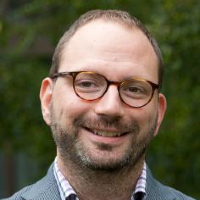 Walter Dawson, DPhil, is a health and aging policy researcher and lifelong advocate for people living with Alzheimer’s disease. Dawson is an Assistant Professor at the Oregon Health & Science University School of Medicine, faculty at the Portland State University Institute on Aging, and a Senior Atlantic Fellow for Equity in Brain Health with the Global Brain Health Institute with the University of California, San Francisco and Trinity College Dublin. His research focuses on the intersection between macro-level health policy and ‘on the ground’ health services research with an emphasis on supporting individuals living with dementia from underserved populations through improved screening for cognitive impairment and long-term care financing arrangements. Dawson also has extensive direct experience in U.S. state and national policy. As staff at the U.S. Senate Special Committee on Aging, he worked on provisions of the Affordable Care Act focused on increasing access to home and community-based services for people in need of long-term care. Dawson received his doctorate from the University of Oxford and masters from the London School of Economics.
Walter Dawson, DPhil, is a health and aging policy researcher and lifelong advocate for people living with Alzheimer’s disease. Dawson is an Assistant Professor at the Oregon Health & Science University School of Medicine, faculty at the Portland State University Institute on Aging, and a Senior Atlantic Fellow for Equity in Brain Health with the Global Brain Health Institute with the University of California, San Francisco and Trinity College Dublin. His research focuses on the intersection between macro-level health policy and ‘on the ground’ health services research with an emphasis on supporting individuals living with dementia from underserved populations through improved screening for cognitive impairment and long-term care financing arrangements. Dawson also has extensive direct experience in U.S. state and national policy. As staff at the U.S. Senate Special Committee on Aging, he worked on provisions of the Affordable Care Act focused on increasing access to home and community-based services for people in need of long-term care. Dawson received his doctorate from the University of Oxford and masters from the London School of Economics.
 Lynette Caldwell works at the Safety, Oversight and Quality Unit and is the Program Manager for adult foster homes licensed with Aging and People with Disabilities (APD). Her team oversees the regulation and policy development for APD adult foster homes while working closely with AFH licensing teams across the state. Lynette is passionate about the AFH model of care and recognizes the unique challenges faced by AFH providers in Oregon.
Lynette Caldwell works at the Safety, Oversight and Quality Unit and is the Program Manager for adult foster homes licensed with Aging and People with Disabilities (APD). Her team oversees the regulation and policy development for APD adult foster homes while working closely with AFH licensing teams across the state. Lynette is passionate about the AFH model of care and recognizes the unique challenges faced by AFH providers in Oregon.
Before her time with SOQ, Lynette managed the medical records team at a long-term care pharmacy in Washington state, working closely with care providers in all types of settings. Lynette has a master’s degree in management and leadership and prides herself on a leadership style that is transparent and open.
Lynette lives at home with her partner, bonus daughter and her cat and pug. In her free time, she skates roller derby and enjoys reading, and hiking with friends.
 Ana Potter, JD, serves as the Director of Aging Veteran Services at ODVA. This division was established to address the needs and concerns of the increasing aging veteran demographic and their families. The division incorporates the operational management of the two Oregon Veterans’ Homes, Conservatorship/Representative Payee Program, Aging Veteran Outreach and the Veteran Volunteer Program.
Ana Potter, JD, serves as the Director of Aging Veteran Services at ODVA. This division was established to address the needs and concerns of the increasing aging veteran demographic and their families. The division incorporates the operational management of the two Oregon Veterans’ Homes, Conservatorship/Representative Payee Program, Aging Veteran Outreach and the Veteran Volunteer Program.
Ana has been an advocate for most of her professional career. Prior to coming to work for ODVA in 2018, she worked for the Safety, Oversight and Quality (SOQ) Unit within Aging and People with Disabilities managing the Community Based Care team. This team licensed, regulated and inspected assisted living and residential care facilities. Prior to working at SOQ, Ana was a Deputy State Long-Term Care Ombudsman for Oregon. Ana graduated from Oregon State University, and then went to Lewis and Clark Law School in 2000 and passed the bar in February 2001.
Ana is married and has one child. In her free time she enjoys being outdoors, cooking and reading.
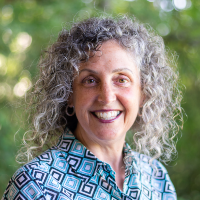 Kimberly Fuson's passion for culture change and social justice to assure access to comprehensive, quality and affordable healthcare commenced in 1990 when she discovered her secret identity as a change agent. Her guises include: Social Worker, Private Case Manager, Guardian Ad-litem, Administrator, Chief Program Officer, Chief Operating Officer, Executive Director, and now, Chief Executive Officer at Cedar Sinai Park.
Kimberly Fuson's passion for culture change and social justice to assure access to comprehensive, quality and affordable healthcare commenced in 1990 when she discovered her secret identity as a change agent. Her guises include: Social Worker, Private Case Manager, Guardian Ad-litem, Administrator, Chief Program Officer, Chief Operating Officer, Executive Director, and now, Chief Executive Officer at Cedar Sinai Park.
Kimberly practices knowing each person served and serving and secures results through organizational development based on person-centered, servant leadership, generative governance, mutual accountability, responsibility, inspiration, creativity, kindness, motivation, self-reflection, independence, honesty, trust.....and commitment to fun.
When not culture changing, Kimberly enjoys traveling the world with family and friends and it is her secret goal to immerse herself in every ocean and sea on the planet.
Supporting Sponsors for this session:




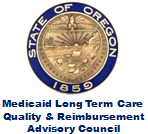


Session Sponsors for this session:

The entire conference series is sponsored by:







 Prev Month
Prev Month View Month
View Month Search
Search Go to Month
Go to Month Next Month
Next Month Robyn Stone, DrPH,
Robyn Stone, DrPH, 

 Walter Dawson, DPhil, is a health and aging policy researcher and lifelong advocate for people living with Alzheimer’s disease. Dawson is an Assistant Professor at the Oregon Health & Science University School of Medicine, faculty at the Portland State University Institute on Aging, and a Senior Atlantic Fellow for Equity in Brain Health with the Global Brain Health Institute with the University of California, San Francisco and Trinity College Dublin. His research focuses on the intersection between macro-level health policy and ‘on the ground’ health services research with an emphasis on supporting individuals living with dementia from underserved populations through improved screening for cognitive impairment and long-term care financing arrangements. Dawson also has extensive direct experience in U.S. state and national policy. As staff at the U.S. Senate Special Committee on Aging, he worked on provisions of the Affordable Care Act focused on increasing access to home and community-based services for people in need of long-term care. Dawson received his doctorate from the University of Oxford and masters from the London School of Economics.
Walter Dawson, DPhil, is a health and aging policy researcher and lifelong advocate for people living with Alzheimer’s disease. Dawson is an Assistant Professor at the Oregon Health & Science University School of Medicine, faculty at the Portland State University Institute on Aging, and a Senior Atlantic Fellow for Equity in Brain Health with the Global Brain Health Institute with the University of California, San Francisco and Trinity College Dublin. His research focuses on the intersection between macro-level health policy and ‘on the ground’ health services research with an emphasis on supporting individuals living with dementia from underserved populations through improved screening for cognitive impairment and long-term care financing arrangements. Dawson also has extensive direct experience in U.S. state and national policy. As staff at the U.S. Senate Special Committee on Aging, he worked on provisions of the Affordable Care Act focused on increasing access to home and community-based services for people in need of long-term care. Dawson received his doctorate from the University of Oxford and masters from the London School of Economics. Lynette Caldwell works at the Safety, Oversight and Quality Unit and is the Program Manager for adult foster homes licensed with Aging and People with Disabilities (APD). Her team oversees the regulation and policy development for APD adult foster homes while working closely with AFH licensing teams across the state. Lynette is passionate about the AFH model of care and recognizes the unique challenges faced by AFH providers in Oregon.
Lynette Caldwell works at the Safety, Oversight and Quality Unit and is the Program Manager for adult foster homes licensed with Aging and People with Disabilities (APD). Her team oversees the regulation and policy development for APD adult foster homes while working closely with AFH licensing teams across the state. Lynette is passionate about the AFH model of care and recognizes the unique challenges faced by AFH providers in Oregon. Ana Potter, JD, serves as the Director of Aging Veteran Services at ODVA. This division was established to address the needs and concerns of the increasing aging veteran demographic and their families. The division incorporates the operational management of the two Oregon Veterans’ Homes, Conservatorship/Representative Payee Program, Aging Veteran Outreach and the Veteran Volunteer Program.
Ana Potter, JD, serves as the Director of Aging Veteran Services at ODVA. This division was established to address the needs and concerns of the increasing aging veteran demographic and their families. The division incorporates the operational management of the two Oregon Veterans’ Homes, Conservatorship/Representative Payee Program, Aging Veteran Outreach and the Veteran Volunteer Program. Kimberly Fuson's passion for culture change and social justice to assure access to comprehensive, quality and affordable healthcare commenced in 1990 when she discovered her secret identity as a change agent. Her guises include: Social Worker, Private Case Manager, Guardian Ad-litem, Administrator, Chief Program Officer, Chief Operating Officer, Executive Director, and now, Chief Executive Officer at Cedar Sinai Park.
Kimberly Fuson's passion for culture change and social justice to assure access to comprehensive, quality and affordable healthcare commenced in 1990 when she discovered her secret identity as a change agent. Her guises include: Social Worker, Private Case Manager, Guardian Ad-litem, Administrator, Chief Program Officer, Chief Operating Officer, Executive Director, and now, Chief Executive Officer at Cedar Sinai Park.









 Export Event
Export Event 